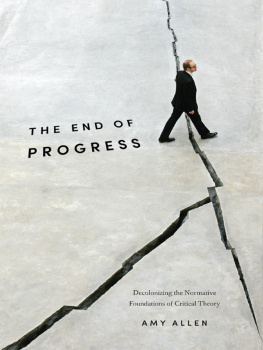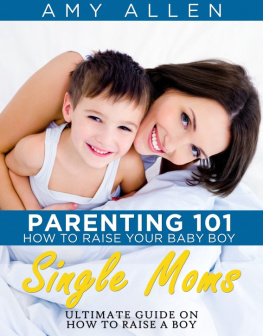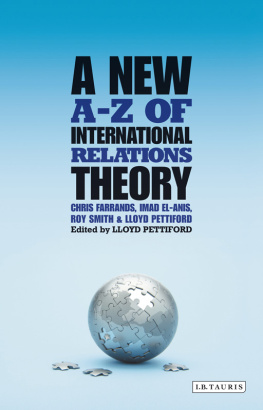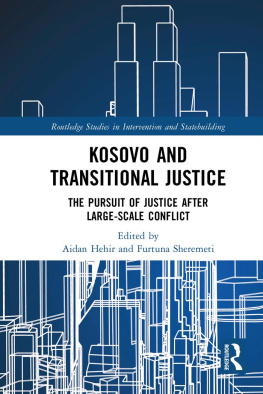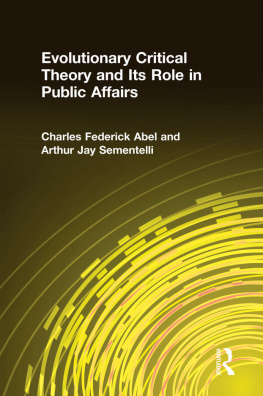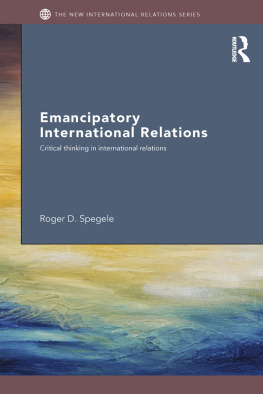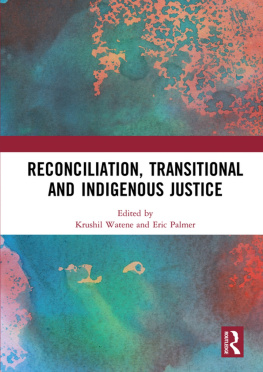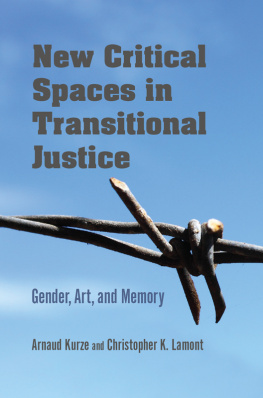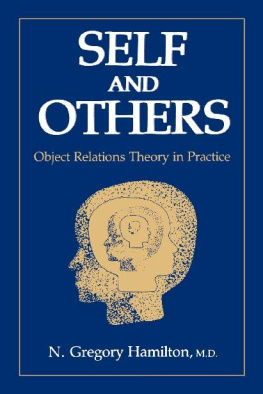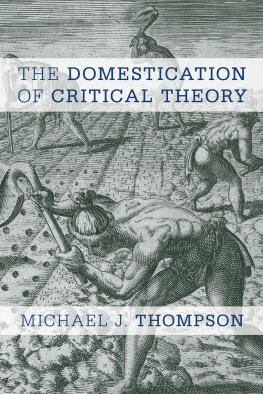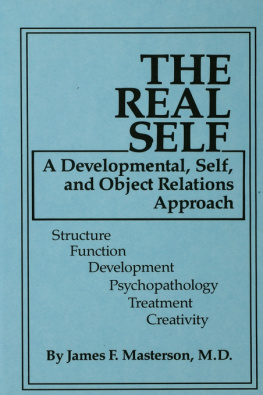Amy Allen - Transitional Subjects Critical Theory and Object Relations
Here you can read online Amy Allen - Transitional Subjects Critical Theory and Object Relations full text of the book (entire story) in english for free. Download pdf and epub, get meaning, cover and reviews about this ebook. year: 2019, publisher: Columbia University Press, genre: Politics. Description of the work, (preface) as well as reviews are available. Best literature library LitArk.com created for fans of good reading and offers a wide selection of genres:
Romance novel
Science fiction
Adventure
Detective
Science
History
Home and family
Prose
Art
Politics
Computer
Non-fiction
Religion
Business
Children
Humor
Choose a favorite category and find really read worthwhile books. Enjoy immersion in the world of imagination, feel the emotions of the characters or learn something new for yourself, make an fascinating discovery.

Transitional Subjects Critical Theory and Object Relations: summary, description and annotation
We offer to read an annotation, description, summary or preface (depends on what the author of the book "Transitional Subjects Critical Theory and Object Relations" wrote himself). If you haven't found the necessary information about the book — write in the comments, we will try to find it.
Amy Allen: author's other books
Who wrote Transitional Subjects Critical Theory and Object Relations? Find out the surname, the name of the author of the book and a list of all author's works by series.
Transitional Subjects Critical Theory and Object Relations — read online for free the complete book (whole text) full work
Below is the text of the book, divided by pages. System saving the place of the last page read, allows you to conveniently read the book "Transitional Subjects Critical Theory and Object Relations" online for free, without having to search again every time where you left off. Put a bookmark, and you can go to the page where you finished reading at any time.
Font size:
Interval:
Bookmark:
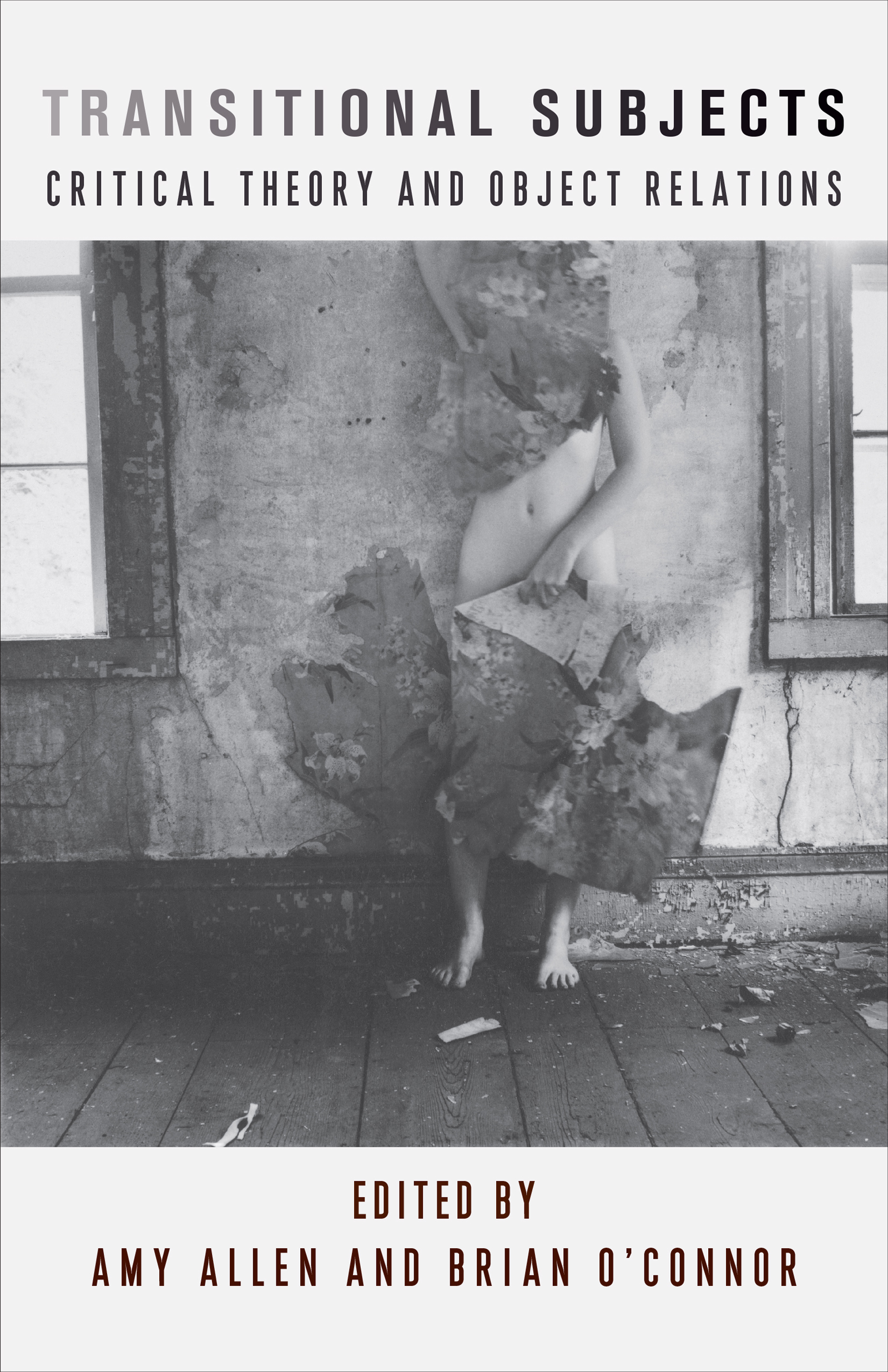
TRANSITIONAL SUBJECTS
NEW DIRECTIONS IN CRITICAL THEORY
AMY ALLEN, GENERAL EDITOR
New Directions in Critical Theory presents outstanding classic and contemporary texts in the tradition of critical social theory, broadly construed. The series aims to renew and advance the program of critical social theory, with a particular focus on theorizing contemporary struggles around gender, race, sexuality, class, and globalization and their complex interconnections.
For a complete list of books in the series, see .
TRANSITIONAL SUBJECTS
CRITICAL THEORY AND OBJECT RELATIONS
EDITED BY
AMY ALLEN AND BRIAN OCONNOR
Columbia University Press New York
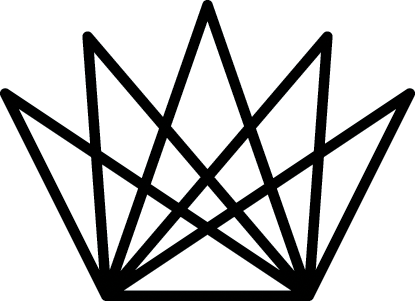
Columbia University Press
Publishers Since 1893
New York Chichester, West Sussex
cup.columbia.edu
Copyright 2019 Columbia University Press
All rights reserved
E-ISBN 978-0-231-54478-8
Library of Congress Cataloging-in-Publication Data
Names: Allen, Amy, editor. | OConnor, Brian, 1965 editor.
Title: Transitional subjects : critical theory and object relations / edited by Amy Allen and Brian OConnor.
Description: New York : Columbia University Press, [2019] | Series: New directions in critical theory | Includes bibliographical references and index.
Identifiers: LCCN 2018048961| ISBN 9780231183185 (cloth : alk. paper) | ISBN 9780231183192 (pbk. : alk. paper)
Subjects: LCSH: Critical theory. | Object relations (Psychoanalysis) | Psychoanalysis and philosophy.
Classification: LCC HM480 .T73 2019 | DDC 150.19/5dc23
LC record available at https://lccn.loc.gov/2018048961
A Columbia University Press E-book.
CUP would be pleased to hear about your reading experience with this e-book at cup-ebook@columbia.edu.
Cover design: Chang Jae Lee
Cover image: Francesca Woodman, Providence, Rhode Island, from Space 2, 1976 copyright 2018 Estate of Francesca Woodman/Charles Woodman/ARS, New York
CONTENTS
AMY ALLEN AND BRIAN OCONNOR
AXEL HONNETH AND JOEL WHITEBOOK
C. FRED ALFORD
ALESSANDRO FERRARA
AMY ALLEN
OWEN HULATT
JAMES MARTEL
JOHANNA MEEHAN
NOLLE MCAFEE
SARA BEARDSWORTH
AMY ALLEN AND BRIAN OCONNOR
T he first task of critical theory was to explainthough not necessarily to overturnthe deformities of everyday life in the modern world that had been so compellingly identified by Karl Marx and Gyrgy Lukcs. Marx and Lukcs influentially encapsulated the impoverished ways of relating to the world that mark human beings socialized under the conditions of capitalist production and rationalistic conceptions of social organization. And both endeavored to explain why those who suffered within such a worldthat is to say, those whose experience was interpreted as inhumanseemed in some sense to accept their lot. It was posited that the institutions and practices of modernity came to appear natural to those socialized within them. As artifacts of second nature, rather than of freedom or human connivance, these institutions and practices seemed to lie beyond the reach of negotiation. The critical categories of alienation and reification are efforts to describe the subjective experience and rootedness of modern social formation. And looking back on those categories we might now think that, although they were originally developed independently, they nevertheless are strikingly resonant with some of the core insights of object relations psychoanalysis. They each describe damaged kinds of human relating. Alienation, among other things, involves a form of response in which others are perceived to be opposed or hostile. Human beings cannot experience each other as opportunities for shared mutual self-realization; indeed, they cannot experience their own laboring activity as a form of self-realization. Thus the very idea of self-realization gives way to self-preservation. The sense of species being is lost where separation is normal and the human capacity for creative self-determination is extinguished. With reification, for its part, the worldincluding the world of objects, other subjects, and even our own selvesis reduced to things. The qualities that we ideally associate with human interactions, where unexpected and enriching new features of the world can be revealed, are replaced by measurable, calculable, predictable quantitative evaluations.
Given this conceptual background and the pervasive influence of Western Marxism on the development of critical theory, it is perhaps unsurprising that the early Frankfurt School forged a strong theoretical alliance with psychoanalysis. In its early phase, however, although critical theory took these phenomena as fundamental to the ontology of modern life, its engagement with psychoanalytic theory consisted mainly of the attempt to explain the resilience of these phenomena in the face of sensible political critiquewhy did the working class accept its exploitation and thereby fail to carry out its world-historical mission?rather than on their effects on emotional and affective development per se. Theodor W. Adorno was the exception. He hewed more closely to the focus on damaged modes of human relating in his efforts to understand the distinctive brutality of the twentieth century, famously identifying coldness among the manifestations of the withering of experience: it is the absence of a capacity for love. In a quasi-therapeutic mode, he suggested that emotionally limited teachers reproduce the same coldness among their students. The result is a tendency to conceive of others as remote and somehow not subject to the same human needs as our own.
The main line of early critical theorys inquiry, however, was the continuing adherence of oppressed and exploited subjects to institutions that necessarily impaired their freedom. Erich Fromm, for example, both the most committed and expert psychoanalytical theorist within the early Frankfurt School, outlined the entrenchment of capitalism and its class relations and could reach only pessimistic conclusions. The results of a wide range of studies from the first phase of critical theory largely closed off a picture of social processes that might be amenable to effective change.
The emergence of a renewed idea of critical theory, led by Jrgen Habermas, would quickly find little use for psychoanalysis. Although his early work contained a serious engagement with Freud and even took psychoanalytic method as a model for emancipatory critique, Habermas soon abandoned this project and turned instead to the cognitive-developmental psychology of Jean Piaget. In one respect, Freudian theory represented a significant component of those hyperbolic and totalizing critiques that Habermas no longer deemed productive. He was not attempting to simply to finesse an inherited methodology. By abandoning a psychoanalytically informed interpretation of social relations, Habermasian critical theory turned its attention to a differentmore determinabletier of human action. The key thing, now, was to discover the possibility of a rational societyand emancipation from domination therebythat could be derived from an idealized reconstruction of implied yet failed processes of reasonable, transparent exchanges among participants. From this perspective, the notion that socialized individuals were irredeemably gripped by patterns of experiencealienated or reified or false consciousness or whicheverthat only a psychoanalytically accented Marxism could reach was firmly abandoned. That major transformation in the core commitments of critical theory alerts us to the complex relation within each of its iterations between its implicit philosophical anthropology, its conception of the power of reason, and its view of the reach of social domination.
Font size:
Interval:
Bookmark:
Similar books «Transitional Subjects Critical Theory and Object Relations»
Look at similar books to Transitional Subjects Critical Theory and Object Relations. We have selected literature similar in name and meaning in the hope of providing readers with more options to find new, interesting, not yet read works.
Discussion, reviews of the book Transitional Subjects Critical Theory and Object Relations and just readers' own opinions. Leave your comments, write what you think about the work, its meaning or the main characters. Specify what exactly you liked and what you didn't like, and why you think so.

